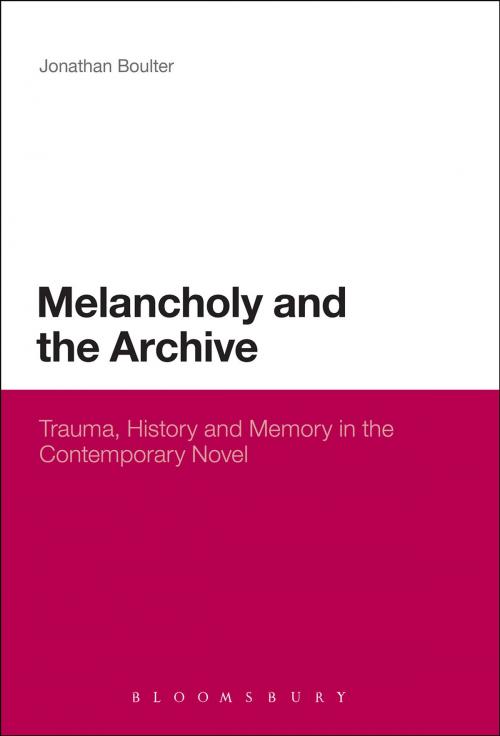Melancholy and the Archive
Trauma, History and Memory in the Contemporary Novel
Nonfiction, Religion & Spirituality, Philosophy, Modern, Fiction & Literature, Literary Theory & Criticism| Author: | Dr Jonathan Boulter | ISBN: | 9781441185358 |
| Publisher: | Bloomsbury Publishing | Publication: | May 19, 2011 |
| Imprint: | Continuum | Language: | English |
| Author: | Dr Jonathan Boulter |
| ISBN: | 9781441185358 |
| Publisher: | Bloomsbury Publishing |
| Publication: | May 19, 2011 |
| Imprint: | Continuum |
| Language: | English |
Melancholy and the Archive examines how trauma, history and memory are represented in key works of major contemporary writers such as David Mitchell, Paul Auster, Haruki Murakami and Jose Saramago. The book explores how these authors construct crucial relationships between sites of memory-the archive becomes a central trope here-and the self that has been subjected to various traumas, various losses. The archive-be it a bureaucratic office (Saramago), an underground bunker (Auster), a geographical space or landscape (Mitchell) or even a hole (Murakami)-becomes the means by which the self attempts to preserve and conserve his or her sense of history even as the economy of trauma threatens to erase the grounds of such preservation: as the subject or self is threatened so the archive becomes a festishized site wherein history is housed, accommodated, created, even fabricated. The archive, in Freudian terms, becomes a space of melancholy precisely as the subject preserves not only a personal history or a culture's history, but also the history of the traumas that necessitates the creation of the archive as such.
Melancholy and the Archive examines how trauma, history and memory are represented in key works of major contemporary writers such as David Mitchell, Paul Auster, Haruki Murakami and Jose Saramago. The book explores how these authors construct crucial relationships between sites of memory-the archive becomes a central trope here-and the self that has been subjected to various traumas, various losses. The archive-be it a bureaucratic office (Saramago), an underground bunker (Auster), a geographical space or landscape (Mitchell) or even a hole (Murakami)-becomes the means by which the self attempts to preserve and conserve his or her sense of history even as the economy of trauma threatens to erase the grounds of such preservation: as the subject or self is threatened so the archive becomes a festishized site wherein history is housed, accommodated, created, even fabricated. The archive, in Freudian terms, becomes a space of melancholy precisely as the subject preserves not only a personal history or a culture's history, but also the history of the traumas that necessitates the creation of the archive as such.















